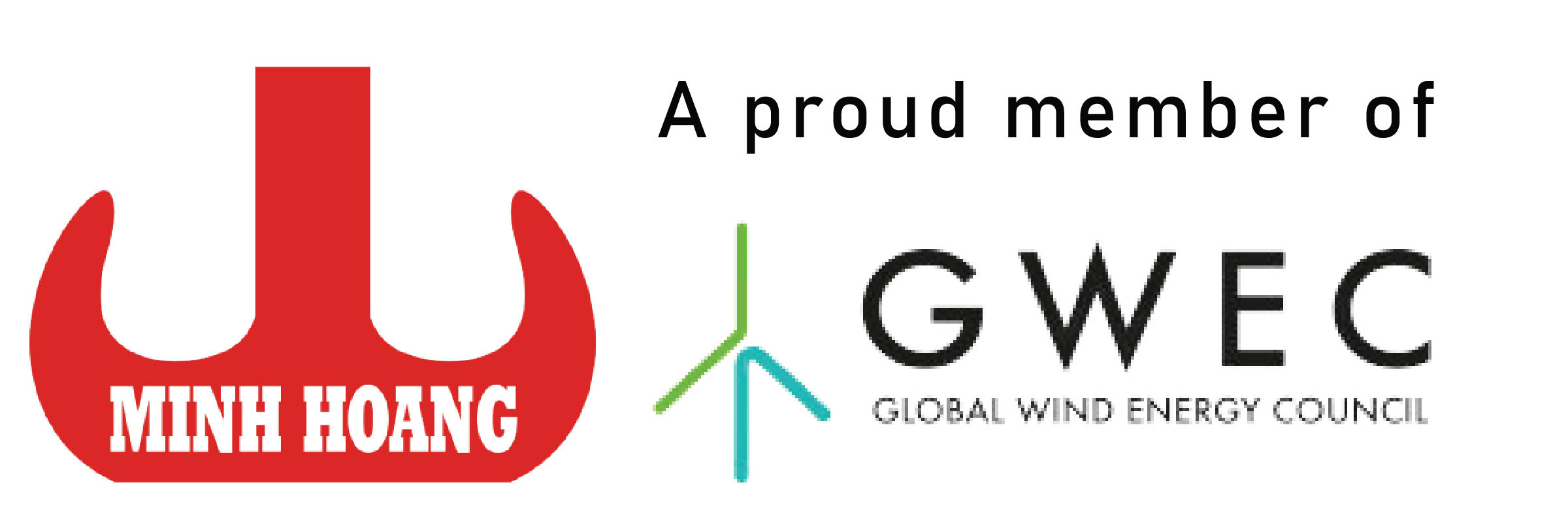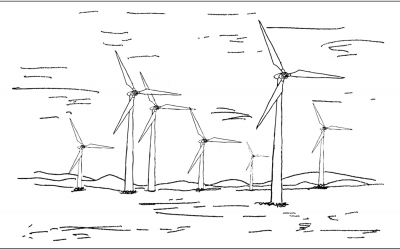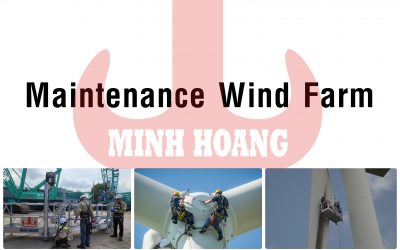9 September 2021, Singapore: The Global Wind Energy Council (“GWEC”) and the global wind industry is calling on the Vietnamese government to postpone the FiT deadline for wind projects by at least six months as a COVID-19 relief measure for the wind sector in Vietnam.
Due to pandemic-related obstacles and delays, most onshore wind projects currently in the pipeline will not complete construction in time to meet the 1 November 2021 deadline for tariff access. Without a deadline postponement, these projects will be unable to progress, adversely impacting local economic growth and the wider renewable energy investment environment in Vietnam.
Over the last few years, Vietnam has emerged as a top market for wind and renewable energy investment in Asia, and particularly South East Asia. The ambitious targets proposed in the draft PDP8 master energy plan have reflected the government’s commitment to long-term decarbonization of the energy system and strengthening Vietnam’s regional competitiveness. It is vital that policymakers act to prevent pandemic-related difficulties from reversing this progress.
The COVID-19 situation in Vietnam has created many hardships for the industry. This extends to supply chain bottlenecks for wind project components, workers prevented from reaching project sites for crucial inspections and activities, travel restrictions for foreign personnel, and other issues. As of August 2021, an industry survey conducted by GWEC estimates that 4,000MW of mainly onshore wind projects in Vietnam are severely challenged by these extenuating circumstances and are now at risk of missing the November deadline for the wind FiT.
Using standard industry calculations based on global and Vietnam averages, 4,000MW of wind projects translates to around USD 6.7 billion in investment that would significantly benefit local authorities and communities. This includes USD 6.51 billion in capital expenditures, and an additional USD 151 million in operating expenditures per year across an average 25-year lifetime of projects. Approximately 21,000 jobs could be created from these wind projects, sustaining coastal populations and supporting a blue economy in Vietnam. Much of this investment and workforce expansion would be locally focused at province level, including in transport, installation and operations and maintenance activities.
GWEC is calling on the Government of Vietnam to implement a 6-month postponement of the FiT deadline to April 2022, to allow wind projects to complete construction safely and within the current procurement scheme. GWEC supports establishing clear criteria for eligibility for this deadline postponement, not a blanket extension. This is in line with international relief measures around the world which have been implemented to support the wind sector from the impacts of the pandemic. For instance, in May 2020 the US provided one year of “safe harbour” for wind projects to complete and continue accessing a clean energy tax credit, while in June 2021, India issued a 2.5-month commissioning extension for renewable energy projects, in recognition of the lockdown measures which lasted from April to mid-June.
Vietnam has identified wind as a key sector for energy security and system decarbonization in Resolution 55, the draft Power Development Plan and other documents. The wind FiT was introduced by Decision 39/2018 and set at 8.5 US cents/kWh for all projects achieving commercial operations (“COD”) before 1 November 2021. This policy provided a clear route to market for onshore wind projects and resulted in an enormous investment pipeline of more than 140 wind projects signing Power Purchase Agreements with the state-owned grid operator, Electivity Vietnam, as of August 2021.
However, due to the massive challenges posed by the ongoing COVID outbreak, most of these projects face uncontrollable delays to construction. GWEC’s survey found that more than 70% of wind projects which had submitted grid connection requests by August 3, 2021 will not achieve COD by the deadline. Missing this deadline would leave these projects outside the FiT scheme, deteriorating their economics and raising the risk of becoming stranded assets.
Specific challenges have become more acute following the April 2021 COVID-19 outbreak in Vietnam, and include:
- International supply chains are backed up and vital equipment is often 6-8 weeks behind schedule. Lack of inbound air freight and limited local transport facilities to move large wind turbine equipment have exacerbated these delays.
- Challenging and complex procedures to bring in necessary international expertise combined with national quarantine policies add at least 2-3 weeks to travel time, in addition to inter-provincial/district quarantine rules which range from 7-21 days. The enforcement of these restrictions has more than doubled the time for foreign experts to travel to project sites, from 8 weeks to 18 weeks.
- Localized lockdowns across districts and provinces have included province-specific quarantines, workforce capacity caps, so-called ‘3 on the spot’ policies, and in some cases complete shutdown of construction operations.
- Slowdown of procedures at port facilities and customs due to COVID-prevention measures and the impact of positive cases among customs staff.
By Gwec


